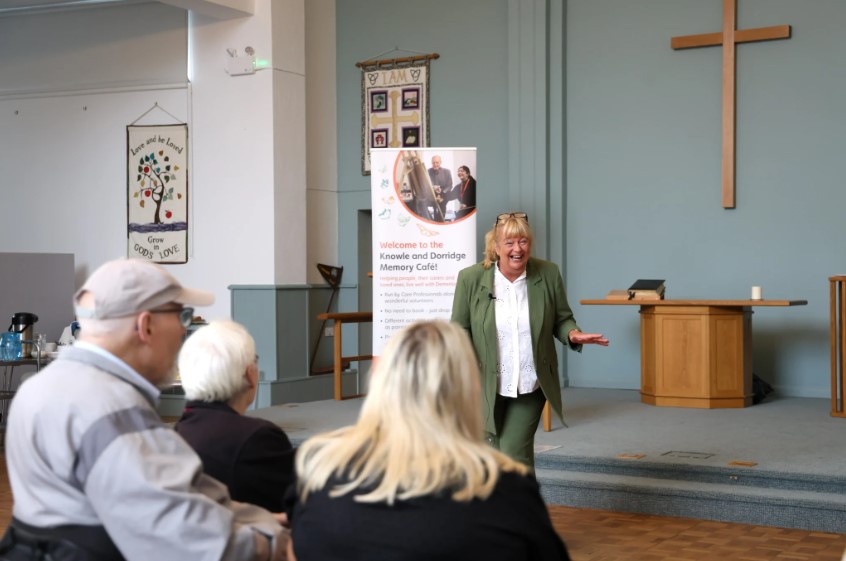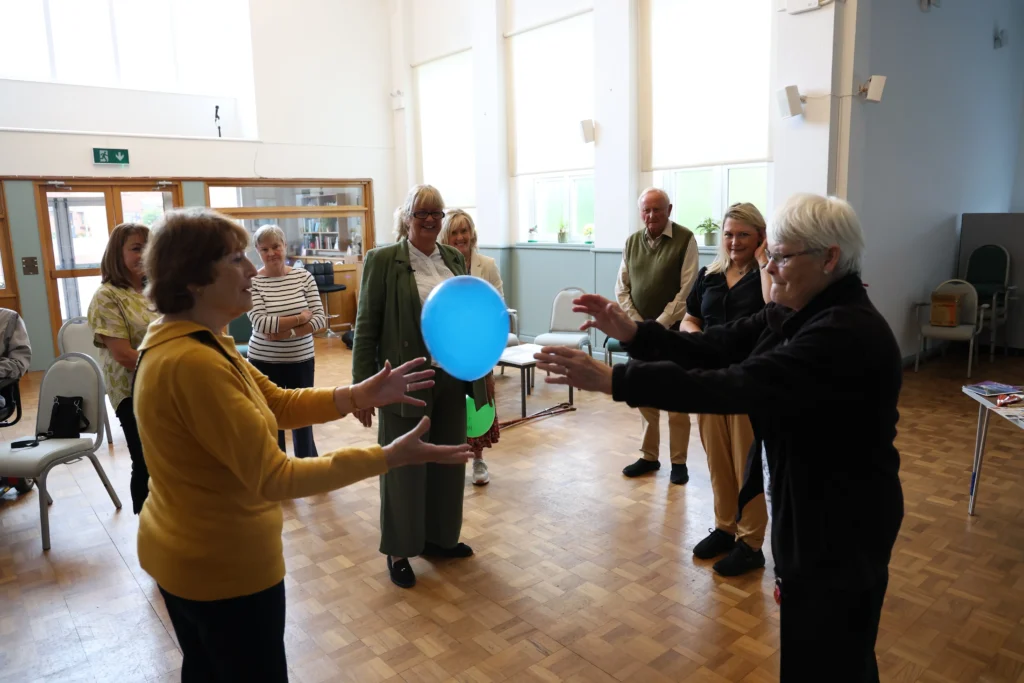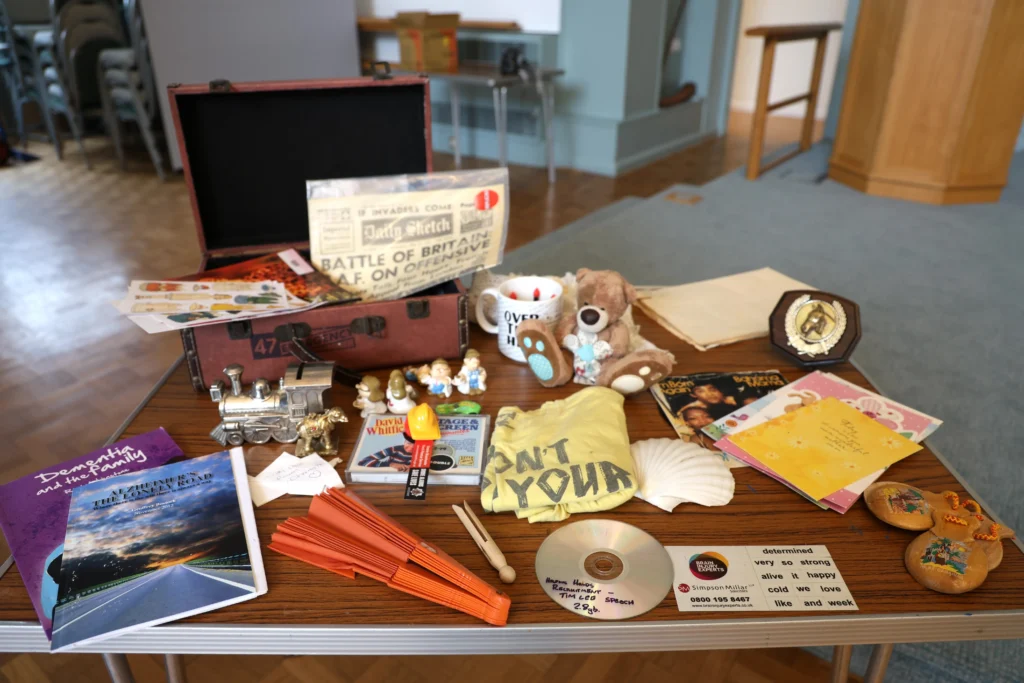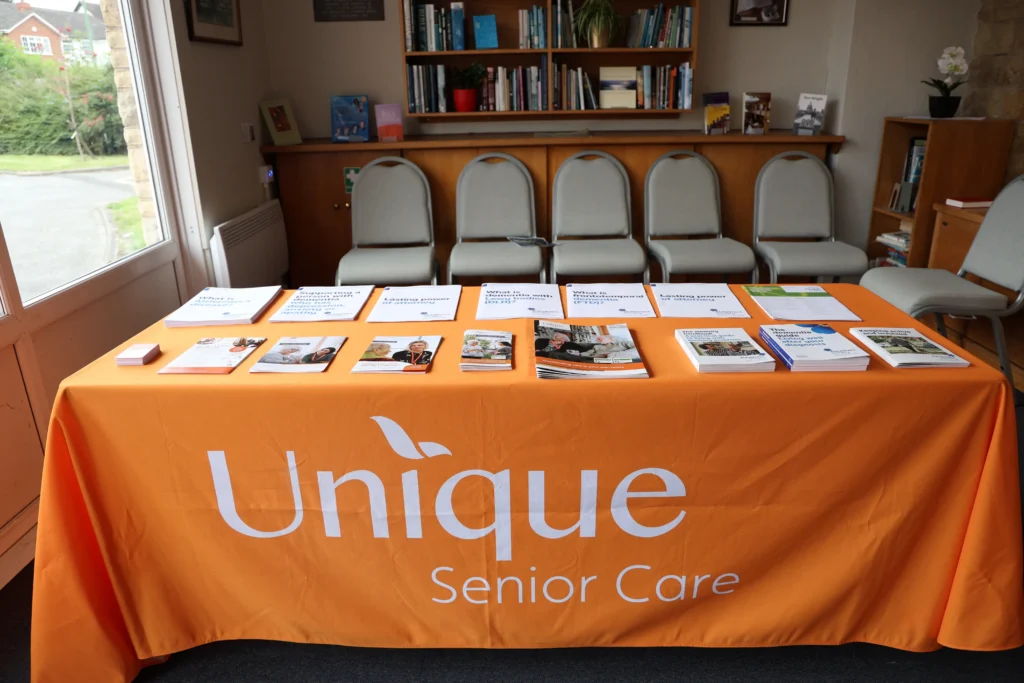
Supporting the Community During World Alzheimer’s Month
Unique Senior Care
By Chloe Hardy
This September, as part of World Alzheimer’s Month, we hosted a special Dementia Support Workshop in partnership with the Knowle and Dorridge Memory Café. World Alzheimer’s Month is a global campaign dedicated to raising awareness about dementia, breaking down the stigma, and supporting the millions of people affected by the condition worldwide.
In the UK alone, nearly 1 million people are living with dementia, and many are supported by 700,000 unpaid carers, often family members who give their time, energy, and love to look after their loved ones.
To offer support to the local community living with or caring for someone with dementia, we gathered at Dorridge Methodist Church with a group of carers, family members, and community members. The workshop focused on sharing helpful advice, practical tips, and most importantly, creating a space where people could feel supported and understood. It was a warm and welcoming environment, filled with friendly faces and meaningful conversations about how we can all better understand and support those living with dementia.
Key Topics Covered During the Workshop
We really wanted this workshop to feel like a conversation – something personal and helpful for everyone who joined. One of the things we talked about was how dementia affects different parts of the brain. Understanding this is key because it explains why people behave or react differently as the condition progresses, and knowing what’s happening in the brain can help carers and family members be more patient and understanding.

To help demonstrate this, we used an interactive balloon activity. In this exercise, participants worked together to keep several balloons – each representing a neuron in the brain – in the air by passing them to one another. As the activity progressed, some participants (representing lost neurons) were asked to step away, making it harder for the remaining group to keep the balloons moving. This symbolised how certain types of dementia, such as Alzheimer’s disease, cause the brain to lose neurons over time. As more people stepped back, the gaps widened, making it increasingly difficult to keep the communication going, mirroring the challenges people with dementia face in processing information and responding.

We also spent time going over the different stages of dementia. This was a chance to really connect with what carers face every day – from the earlier phases where small memory lapses occur, to the later stages when someone may need round the clock support. The idea was to give families the tools to anticipate these changes, so they’re not caught off guard and can better prepare emotionally and practically.
One of the main things everyone wanted to know was how they could better communicate with their loved one. So, we shared lots of practical tips on communication. As dementia progresses, verbal communication can become trickier, and that’s where things like non-verbal cues – the smiles, touch, eye contact and our tone – become so important.
We talked about the power of slowing down, being patient, and how adapting the way you speak or gesture can help maintain that deep connection. It’s all about finding what works, even when words fail.
And of course, we couldn’t finish without talking about ways to engage with someone living with dementia through activities.

Whether it’s a simple memory game or a sensory task like sorting through familiar objects, these activities are great for stimulating the brain. They all bring a bit of joy and fun back into the day. We really encouraged participants to focus on those shared moments, however small they may seem – sometimes it’s the little things, like doing a crossword together or listening to music, that can have such a positive impact on wellbeing.
Our aim was to make everyone feel a little more equipped, but also more hopeful. Navigating dementia can be challenging, but there are always ways to make life a bit brighter for those living with it and their families. It was lovely to see so many people leave with new ideas and a fresh sense of what they can do to stay connected with their loved ones.
What Else We’ve Done During World Alzheimer’s Month
Alongside our Dementia Support Workshop, we’ve been busy throughout World Alzheimer’s Month, running several other events to support families affected by dementia. Earlier in the month, on 3rd September, we welcomed David Rees-Jones from the Alzheimer’s Society to the Knowle and Dorridge Memory Café.
David shared some incredibly helpful advice with carers, offering practical tips and pointing them towards essential resources. It was a session full of lightbulb moments. It gave families a real sense of how they can navigate the challenges of dementia more easily.
Towards the end of the month, on 24th September, we have representatives from Age UK visiting to talk about the wide range of services available for older adults. Their session will focus on health advice and social programmes, which are so important in helping reduce the loneliness that can often come with caring for someone with dementia.
All of these events are part of our commitment to supporting the community and helping families feel more confident and connected. We know dementia can feel overwhelming at times, but with the right resources and support, no one has to face it alone.
The People Behind Our Community Education

Jayne Vale, a dementia care specialist with over 17 years of experience, drives our community education initiatives. Jayne has been instrumental in developing the dementia training and resources offered by Unique Senior Care. Alongside her, Jo Cleary, our Learning and Development Manager, has led our training arm for the past 13 years, ensuring that our Caregivers, families, and staff have the knowledge and skills to provide compassionate, effective care. Meanwhile, Karen Wilkinson, our Community Liaison, has been at the forefront of making the Knowle and Dorridge Memory Café a success, ensuring that people living with dementia and their families receive much-needed support through these community efforts.
The Success of the Workshop
We’re so pleased to say the workshop was a real success! It gave everyone who attended a chance to learn, share their experiences, and walk away with some really useful resources. The feedback we received was wonderful. People told us they came away with a much deeper understanding of dementia and felt more confident about how to approach their caregiving roles. The session was interactive, which meant lots of great conversations, practical advice, and expert insights. Most importantly, it helped families feel supported and more equipped to face the everyday challenges of caring for a loved one with dementia.


Continuing to Raise Awareness and Support
World Alzheimer’s Month reminds us of the importance of raising awareness about dementia and supporting those affected by it. We’re committed to providing ongoing education and resources to ensure that no one feels alone on this journey. If you missed this event, the Knowle and Dorridge Memory Café is a great initiative supporting those affected by dementia. It can offer advice, social activities, and signposts on resources. By working together, we can continue to build a more dementia-friendly society.
For more information on future events or dementia care services, please reach out to us at Unique Senior Care or visit the Knowle and Dorridge Memory Café.